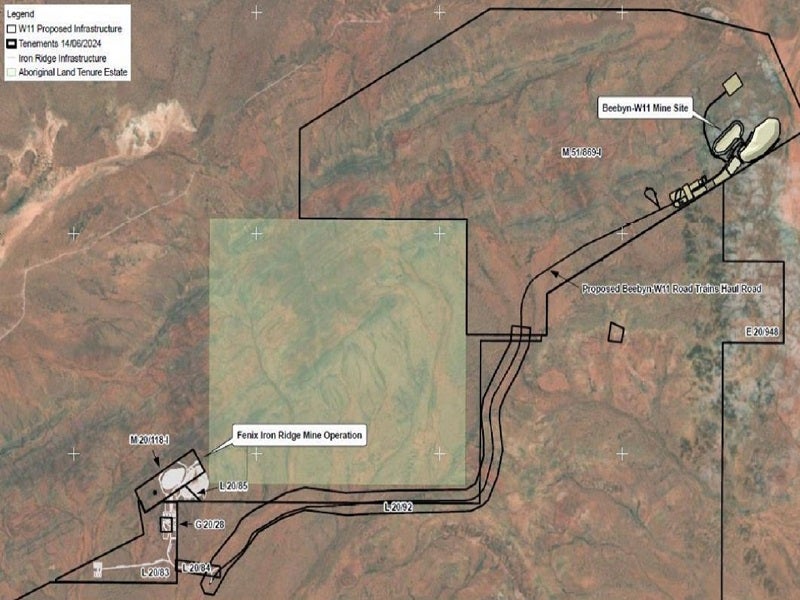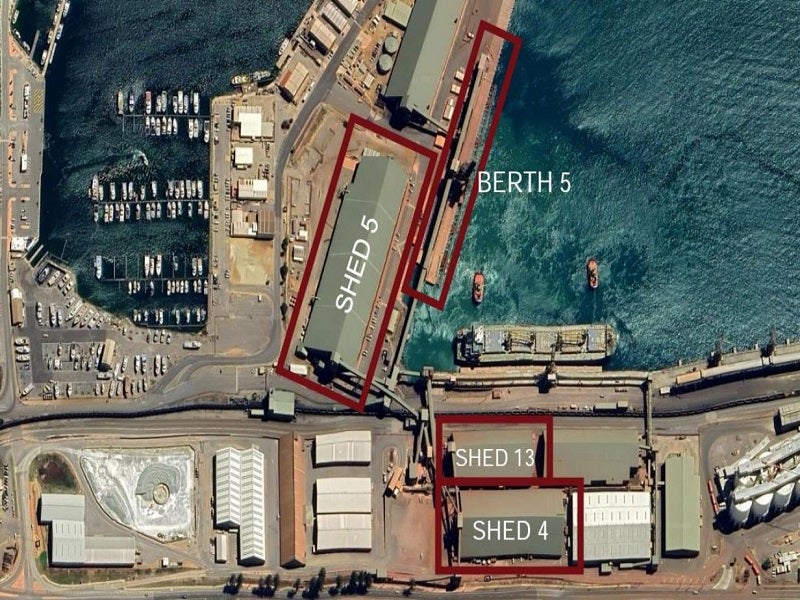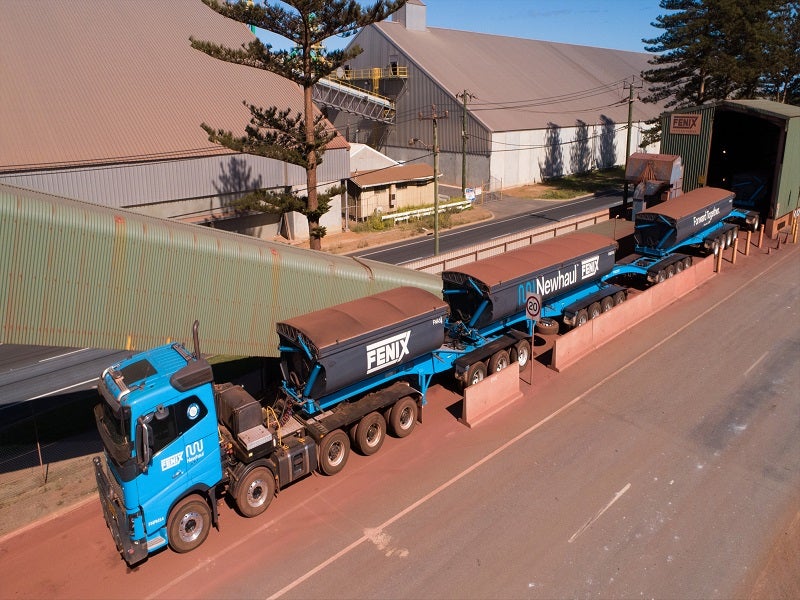The Beebyn-W11 project, situated in Western Australia’s mid-west region, is being developed as a direct shipping ore (DSO) operation by Fenix Resources, an iron ore producer based in Australia.
Fenix Resources entered into a binding agreement with the Sinosteel Midwest Corporation (SMC) in October 2023, securing exclusive rights to mine and export up to ten million dry metric tonnes of high-grade iron ore from the Beebyn-W11 deposit.
A feasibility study completed in July 2024 outlined a life of mine of 6.7 years, with an investment of approximately A$22.9m ($15.1m). The project anticipates an annual production rate of 1.5 million tonnes per annum.
The Beebywn-W11 DSO iron ore project is set to commence operations in 2025.
Project location
The Beebyn-W11 deposit lies within the Beebyn area (M 51/869-I) in the greater Weld Range. The site is 508km from Port Geraldton, in Western Australia’s mid-west, and 20km from Fenix Resources’ existing Iron Ridge operations.
Geology and mineralisation
The Beebyn-W11 deposit is part of the Murchison Domain in the Yilgarn Craton, Western Australia. It comprises a near-surface, steeply dipping Archaean banded iron formation, encircled by mafic igneous rocks within the east-northeast trending Weld Range greenstone belt.
Mineralisation at Beebyn-W11 includes goethite-hematite and massive magnetite, specular hematite, goethite and limonite ore bodies.
Beebyn-W11 reserves
The proven and probable mineral reserves at the Beebyn-W11 project stand at 10Mt with an iron grade of 62.2%, as of July 2024. The project’s mineral reserve is limited to be in line with the mining agreement with SMC.
Mining method at Beebyn-W11
The Beebyn-W11 Project will employ conventional open-pit mining techniques, using a standard drill and blast, load and haul cycle. The mining fleet will include a 120t excavator and 90t off-highway trucks, supported by appropriate equipment.
The deposit will be mined in three stages, with an estimated total tonnage of 31.7Mt and a strip ratio of 2.2:1. The ultimate pit will measure approximately 875m in length, 275m in width and 125m in depth.
Stage one will target the eastern side of the ridge, removing low strip material while maintaining a 45m buffer from heritage areas, excavating from 550m to 520m reduced level (RL) to yield 1.1Mt of ore at a strip ratio of 1.9.
Stage two will focus on the western end of the ridge, from 550m RL to 520m RL, producing 0.8Mt of ore with a strip ratio of 2.5.
Following stages one and two, operations will move to the remainder of the pit, from 520m RL to the base at 410m RL. Stage 3 is expected to produce 8.1Mt of ore with a strip ratio of 2.2.
Processing
The dry processing plant will add water to the product for dust suppression, with run of mine (ROM) moisture content remaining below 5%.
The processing plant components will feature mobile and modular units, with ROM ore undergoing primary and secondary crushing, followed by sorting in a multi-deck screen to separate lump and fines products. The products will be transported by road to Geraldton Port.
Site infrastructure
The project will use the Berringarra-Cue Road, Great Northern Highway (National Route 95) and Geraldton Mount Magnet Road (State Route 123) for site access and ore transport to the port of Geraldton.
A sealed 17.6km haul road and mine access road will be constructed to connect the Beebyn-W11 mine to the Iron Ridge – Berringarra-Cue Road.
The existing 132-room accommodation facility owned by Fenix Resources at the Iron Ridge camp, 20km from Beebyn-W11, will be expanded by 60 rooms to support the project.
Water supply will be sourced from pit dewatering and purpose-drilled bores, while on-site power will be generated by high-efficiency diesel-powered gensets in an N+1 configuration.
Contractors involved
Oreology, a mine planning and resource consultancy, was responsible for the mineral reserve estimate and mine design and schedules.
Civtec, an engineering consultancy, managed the project’s civil engineering and design.
Ecotec, an environmental consultancy, was engaged for environmental studies and approvals.
Fenix Resources’ wholly-owned logistics subsidiaries, Newhaul Road Logistics and Newhaul Port Logistics, will offer road transport and port services for the project.






